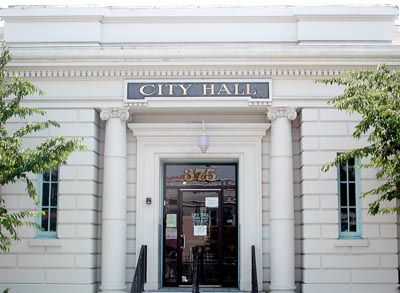Weekly street sweeping services are the latest victim of a
stagnant local economy, as the City of Hollister will switch to
bi-weekly service starting Oct. 1.
Weekly street sweeping services are the latest victim of a stagnant local economy, as the City of Hollister will switch to bi-weekly service starting Oct. 1.
Residents were reminded of the change in this month’s sewer and water bill, with a message stating, “This change is necessary due to increased operation costs, primarily fuel and maintenance.”
Street supervisor Ray Rojas said that street sweeping service days will not change; rather, customers will have their streets and gutters cleaned every other week instead of the weekly program that has been in place for years.
“The routes will be split in half,” he said, “so we’ll do half the Monday route the first Monday and the others the week after that. If you’re street isn’t swept that first week (of October) they’ll be there the second week on the same day.”
Rojas said the Hollister City Council approved the service reduction after budget deliberations earlier this year.
“Right now the fees we charge can’t support our street sweeping operations,” he said. “During budget sessions, we’ve been bringing up to them that we need to raise the rates or find another alternative. After seeing the budget numbers, the option was to reduce the services rather than raise fees.”
Hollister charges $2.40 per month (60 cents per week) for street sweeping. Rojas said estimates showed a minimum 30 percent increase would be required to maintain the weekly service.
“The council is not ready to do that yet, so I’m just following the suggestion of the council,” he said.
The city’s utilities division has three street sweeping vehicles; one of which is a back-up in case one of the other two goes out of service. During the housing boom in the 1990s, the city added a second street sweeper and assigned two workers to handle the daily shifts.
“Since the moratorium was lifted, there has been a little growth and we’ve been behind for a little while,” Rojas said. “It just caught up to us. We’ve been on a reduction of services (less frequent pothole repairs; as-needed service calls) for quite a while, starting with the moratorium. The economy hasn’t allowed us to go back to where we were.”










